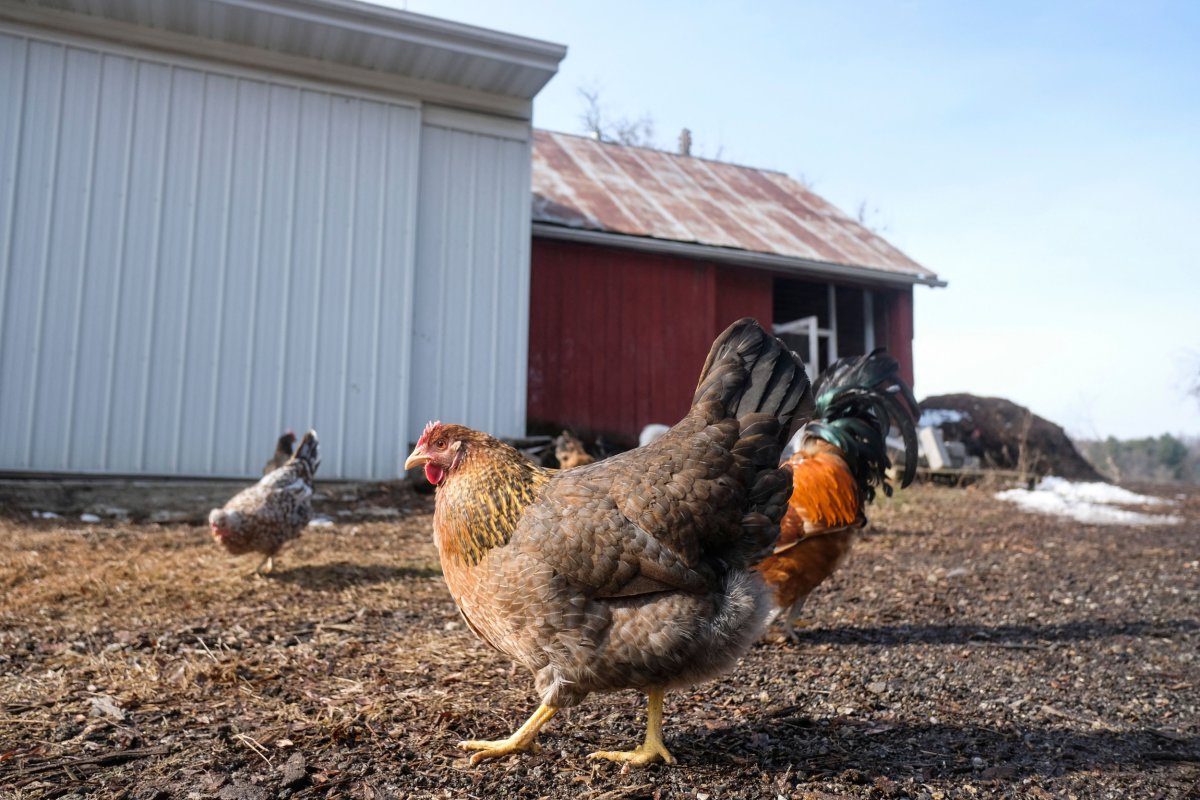As cases of bird flu increase, experts are urging pet owners to remain vigilant and take precautions to safeguard their animals from the disease.
While avian influenza primarily affects wild and domestic birds, some strains have the potential to infect mammals, including pets, under certain conditions.
Newsweek contacted the American Veterinary Medical Association (AVMA) via email for comment on Friday.
Why It Matters
Bird flu, or Highly Pathogenic Avian Influenza (HPAI), caused by viruses such as H5N1 and H5N8, spreads primarily through contact with infected birds, their droppings, or contaminated surfaces.
While human-to-pet transmission is rare, pets including cats and dogs can become infected if they come into close contact with infected birds or consume raw meat from infected poultry.
Pets are naturally curious, and this could put them at risk. It is important to minimize their exposure to wild birds and areas where infected birds might be present.

What To Know
Bird flu has been spreading for years in wild birds, chickens, turkeys, and many other animals. It was first confirmed in U.S. dairy cattle in March.
According to The Associated Press, the virus has caused sporadic, mostly mild illnesses in people across the U.S, with nearly all cases involving individuals who worked on dairy or poultry farms. To prevent the disease from spreading, all birds on an affected farm are culled when the virus is detected.
Dr. Michael Q. Bailey, president-elect of the AVMA, warns that feeding raw meat to pets can be hazardous and potentially fatal. Cooking meat or pasteurizing raw milk effectively eliminates the bird flu virus and other harmful pathogens.
"Raw milk, raw meat products can be and are a vector for carrying this virus," he told the AP.
The Los Angeles County Department of Public Health is investigating the deaths of four house cats that consumed recalled raw milk. While dogs appear to be less susceptible than cats, they should only be fed thoroughly cooked food, advised Dr. Bailey.
The death of an Oregon house cat was linked to the disease and a recall of pet food. Oregon health officials linked the cat's illness to frozen cat food containing raw turkey. Tests confirmed that the virus found in the recalled pet food matched the one detected in the infected cat.
Currently, no vaccine is available for animals in the U.S.
What People Are Saying
Public health experts emphasize the importance of coordinated efforts between governments, veterinarians, and pet owners to control the spread of bird flu. In areas experiencing outbreaks, heightened vigilance and being proactive and informed could prevent the disease from spreading further.
To reduce the risk of bird flu transmission to pets, the AVMA recommends the following measures:
- Bring pet birds indoors or ensure areas where backyard birds are kept are fully enclosed, away from wild birds and their droppings.
- Wash or sanitize your hands before and after handling birds, and when moving birds between coops.
- Keep feed, drinking water, equipment, and other supplies secure, out of reach of wild birds or rodents.
- Prevent visitors from contacting your flock, and avoid visits to places where other birds are kept.
- Know the signs of HPAI, and immediately report any suspected infections to your veterinarian or state animal health official.
- Call your veterinarian first, before bringing your bird(s) in to be seen.
Tips for preventing HPAI infection in dogs and cats are the same as for many other infectious diseases, according to AVMA:
- Keep cats indoors.
- Keep pets that do go outdoors away from wild birds, poultry, and cattle and their environments.
- Prevent pets from eating dead birds or other animals.
- Avoid feeding pets raw meat or poultry and unpasteurized milk.
What Happens Next
As bird flu remains an ongoing concern, pet owners are reminded that prevention is the best strategy for protecting their furry companions from the disease.




















 English (US) ·
English (US) ·